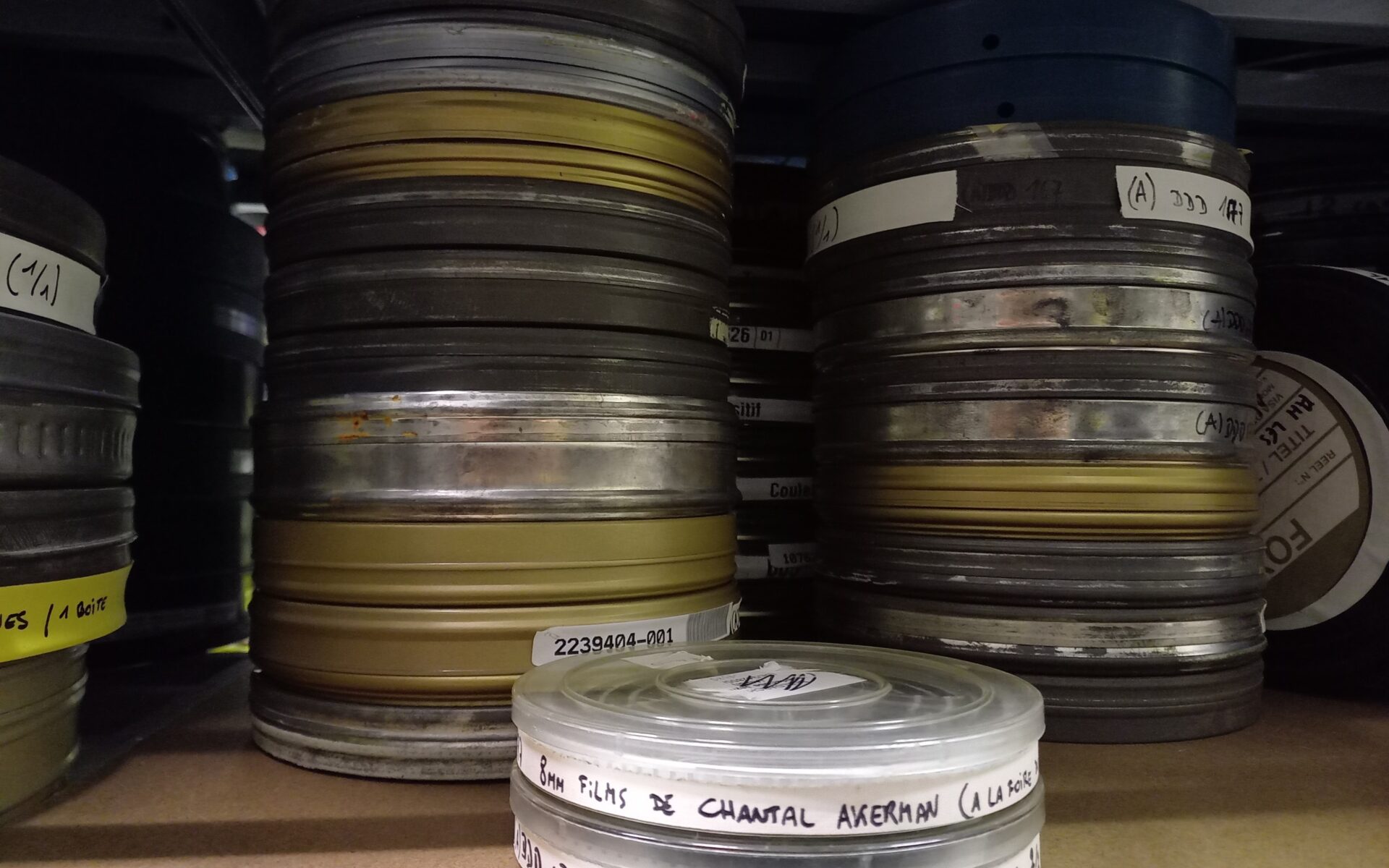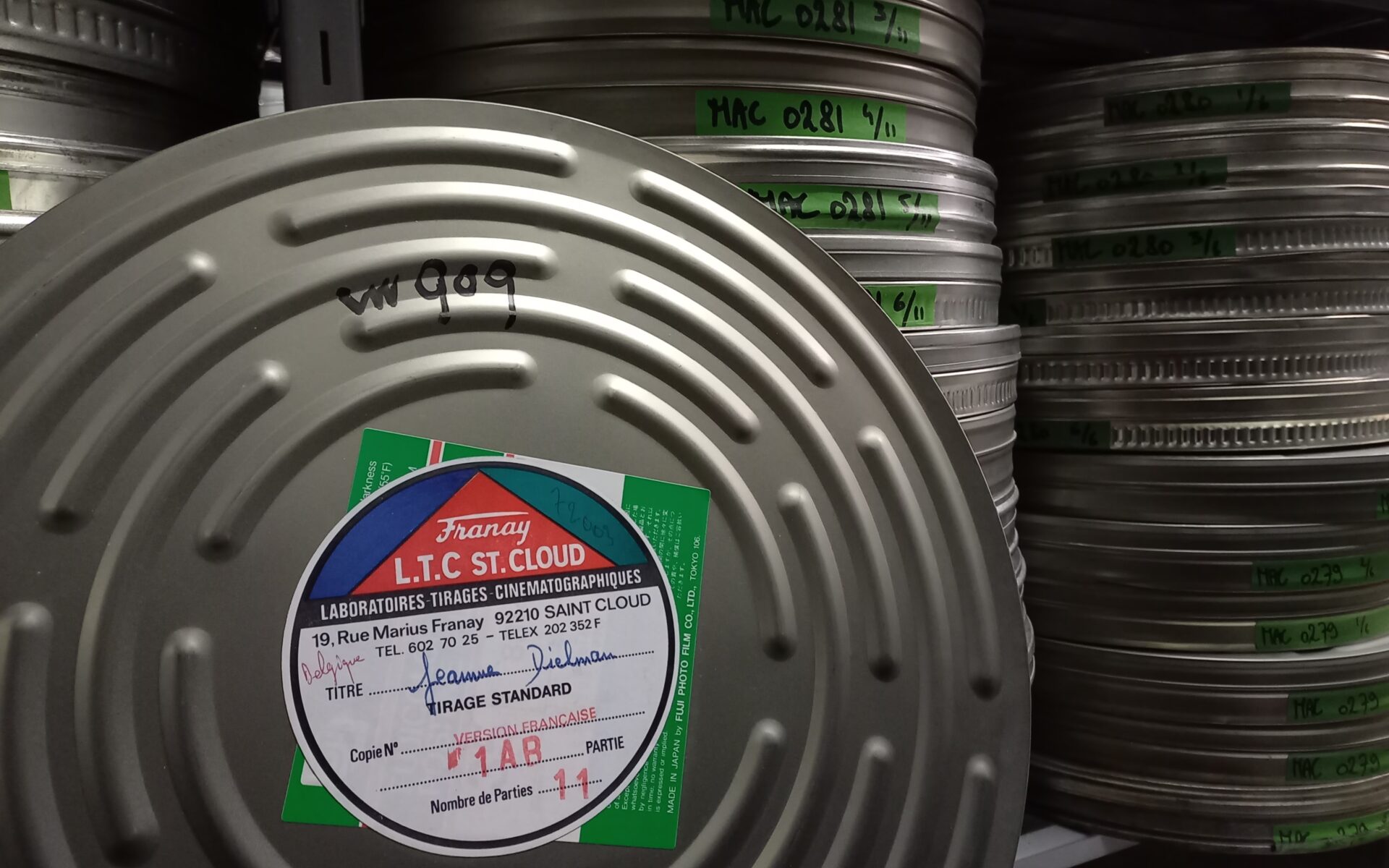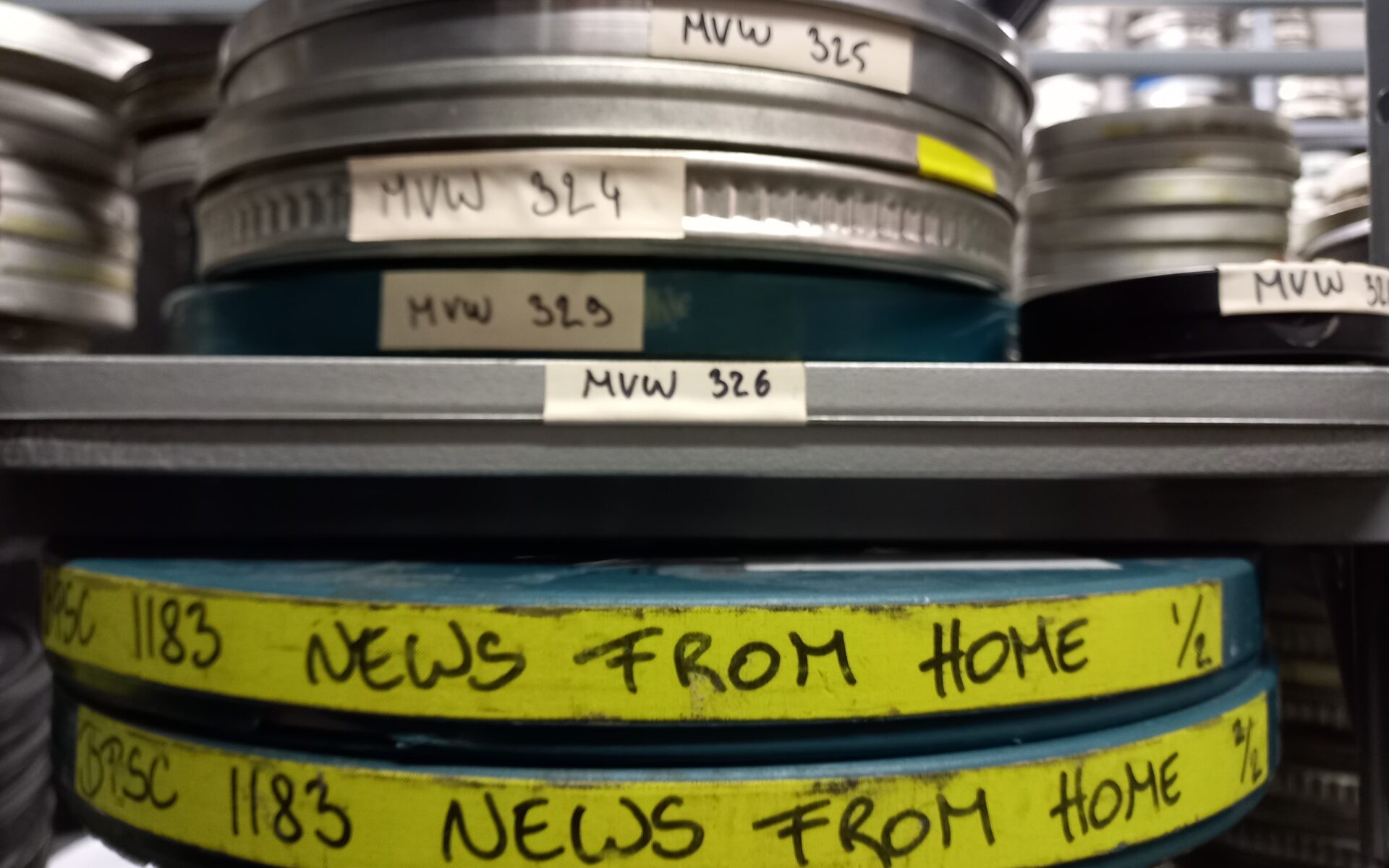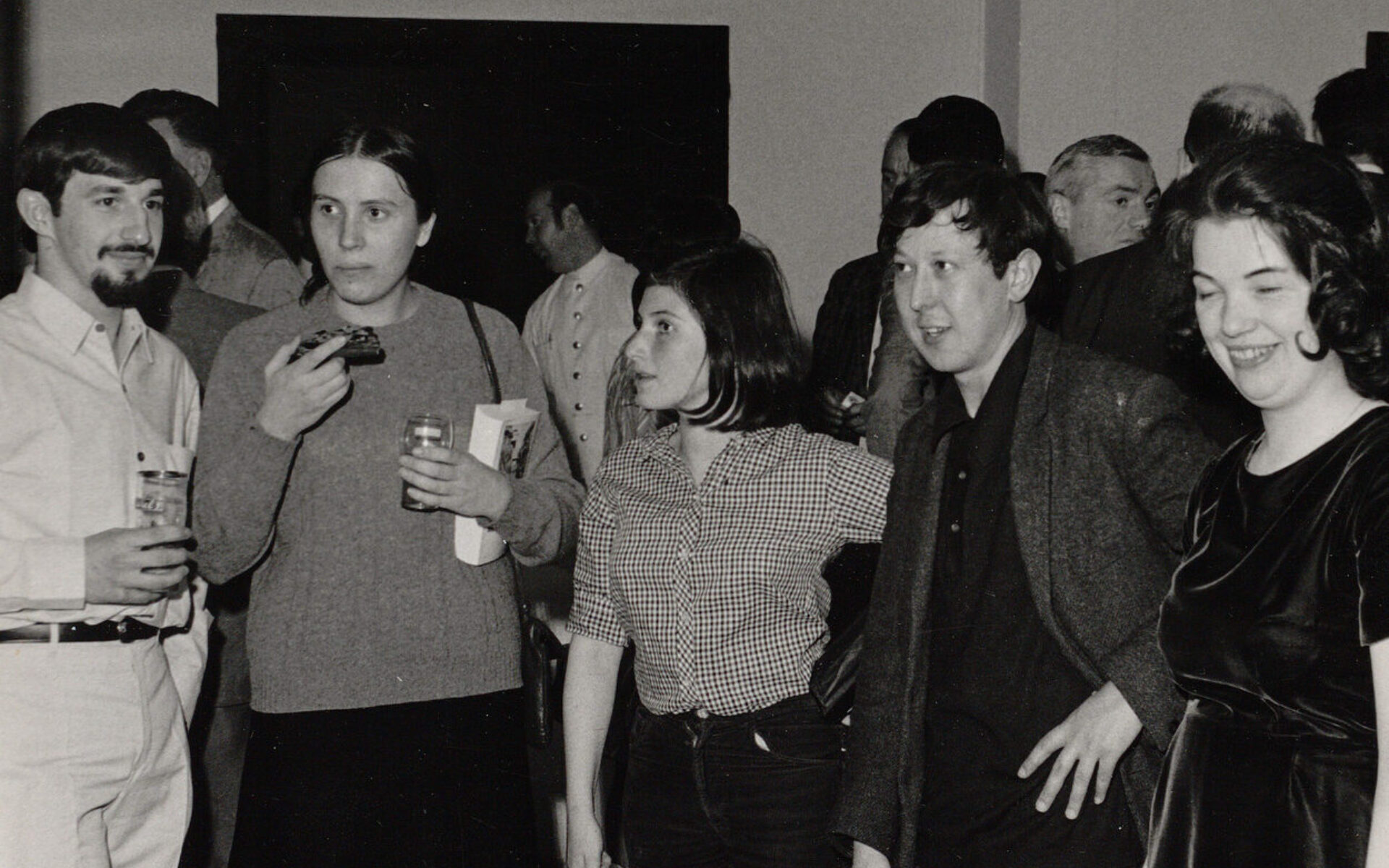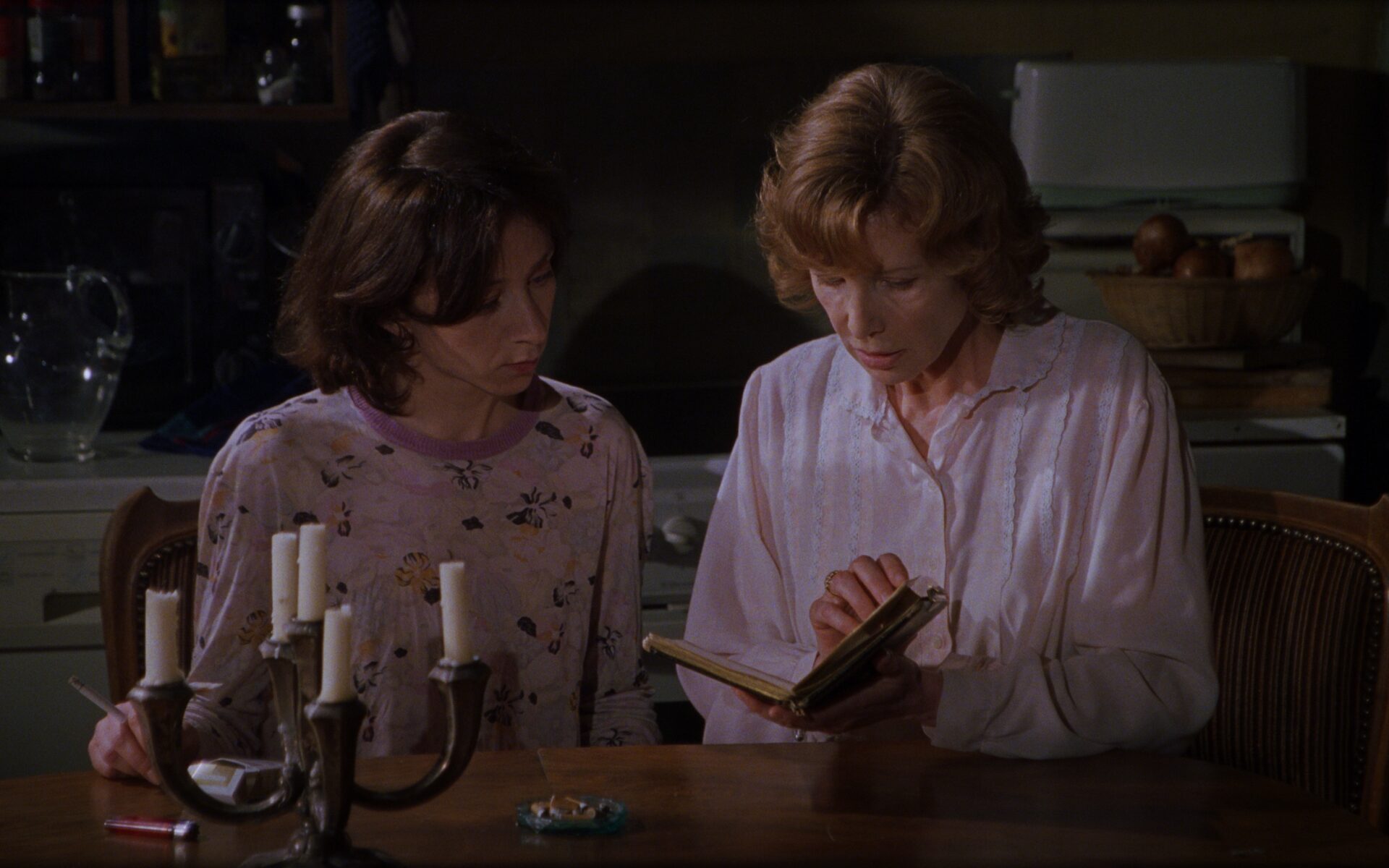
Chantal Akerman, Restauration
Preparing a Restoration
Restoring Chantal Akerman's Films #1
The restoration of Chantal Akerman’s film Demain on déménage by the Royal Film Archive of Belgium took place while the institution was preparing and organizing the retrospective dedicated to her from March to July 2024.
01.03 2024
Restoring Chantal Akerman’s Films
The restoration of Chantal Akerman’s film Demain on déménage by the Royal Film Archive of Belgium took place while the institution was preparing and organizing the retrospective dedicated to her from March to July 2024. This is an opportunity to take stock and examine more than ten years spent working on the restoration of her films. Arianna Turci and Bruno Mestdagh, the heads of the film collections, explain the preparatory work that was done for the restoration of Chantal Akerman’s films.
Preparing a Restoration
Demain on déménage
The restoration of Chantal Akerman’s film Demain on déménage by the Royal Film Archive of Belgium took place while the institution was preparing and organizing the retrospective dedicated to her from March to July 2024. This is an opportunity to take stock and examine more than ten years spent working on the restoration of her films. Arianna Turci and Bruno Mestdagh, the heads of the film collections, explain the preparatory work that was done for the restoration of Chantal Akerman’s films.

The goal of restoring Chantal Akerman’s films is to allow today’s audience to see her films in the best possible conditions. This involves significant work on both the image and sound of the films in the Film Archive’s restoration lab. Back in the day, Chantal Akerman’s films were shot on film and released in theaters equipped with analog projectors. Today, with the majority of cinemas equipped only with digital projectors, there are very few cinemas left that are still capable of projecting film reels. The habits of watching movies have also changed, as people now watch far more movies at home on small screens. In order for the public to watch Chantal Akerman’s films today, a digital version of her films is necessary.
To achieve a beautiful result, simply digitizing the films is not enough; they need to be restored. A film by Chantal Akerman may have been shown hundreds of times in theaters since its release, and the print has suffered as a result. The original image may have accumulated scratches, dust, and defects that were not present when the print was first shown. It is through the process of digital restoration that we seek to remove these traces left on the film over time. However, before the actual restoration can begin, a significant amount of preparatory work is required.

The initial steps in restoring a film involve securing the film’s rights and locating the original physical elements, meaning the film reels that will serve as basis for the digital restoration version. The goal is to start the restoration with the best possible material to achieve the highest image quality. Additionally, the film’s rights must be settled to ensure that the restored version can be presented to the public. However, even for relatively recent films, such as Demain on déménage, released in 2004, finding the material and securing the rights is not always straightforward.
The search for material typically begins with the search for the original negative of the film, as it is the best starting element. For Demain on déménage, CINEMATEK did not have the original negative in its collections. The film is a French-Belgian co-production, like other films by Chantal Akerman, and the negative was kept in a French laboratory that had produced distribution copies at the time. Unlike labs in Belgium, French labs generally preferred to keep the materials of the films they worked on. Conversely, in Belgium, there was a good relationship between CINEMATEK and the labs, which, after producing a film, would deposit the negatives and other materials for preservation with CINEMATEK. For example, CINEMATEK has always kept the negative of Toute une nuit (1982), but not of Demain on déménage. In such cases, a request must be made to the laboratory to retrieve the materials and have them delivered to CINEMATEK for restoration.
To understand the history of preserving Chantal Akerman’s work, it is also important to recount the efforts made during the retrospective of her films at CINEMATEK in 1996. That year, CINEMATEK presented a complete Chantal Akerman retrospective to mark the release of A Couch in New York. Organizing this retrospective required extensive research to gather all the films, a process that remains crucial today. At the time, Gabrielle Claes, who was back then conservator at CINEMATEK, took the initiative to create new
preservation copies from the films gathered for the retrospective. Thus, the restoration of a film like La Paresse (1986) in 2019 was possible thanks to the materials created in 1996.Securing the rights is as demanding as finding the materials. The rights to some films belonged to Paradise Films, the production company of Chantal Akerman and Marilyn Watelet. In 2017, Watelet transferred all Paradise Films to the Fondation Chantal Akerman. For other titles, the rights were scattered and shared among various co-producers. One of the Fondation’s missions was to consolidate the films under its umbrella. CINEMATEK and the Fondation worked together to gather and purchase the rights from co-producers or, when that wasn’t possible, to negotiate terms to ensure the restorations.
In the early 2010s, to preserve and perpetuate her work, Chantal Akerman and CINEMATEK began working more intensively to gather the materials of her films. Back then, Nicola Mazzanti was the conservator of CINEMATEK and under his supervision, CINEMATEK developed its restoration lab and began the first digital restorations. After Chantal Akerman’s death in 2015, this work continued in close collaboration with the Fondation Chantal Akerman, founded by her sister Sylviane.
Today, the Fondation Chantal Akerman and CINEMATEK continue to collaborate to highlight Chantal Akerman’s work. It is within this framework that CINEMATEK restored Demain on déménage. The restoration process itself will be the subject of the second article in this series on the restoration of Chantal Akerman’s films.
Read more
The restoration of Demain on déménage is supported and financed by Belspo, the Centre du Cinéma et de l’Audiovisuel of the Federation Wallonia-Brussels, the European Union – NextGeneration EU, and the National Lottery and its players.

